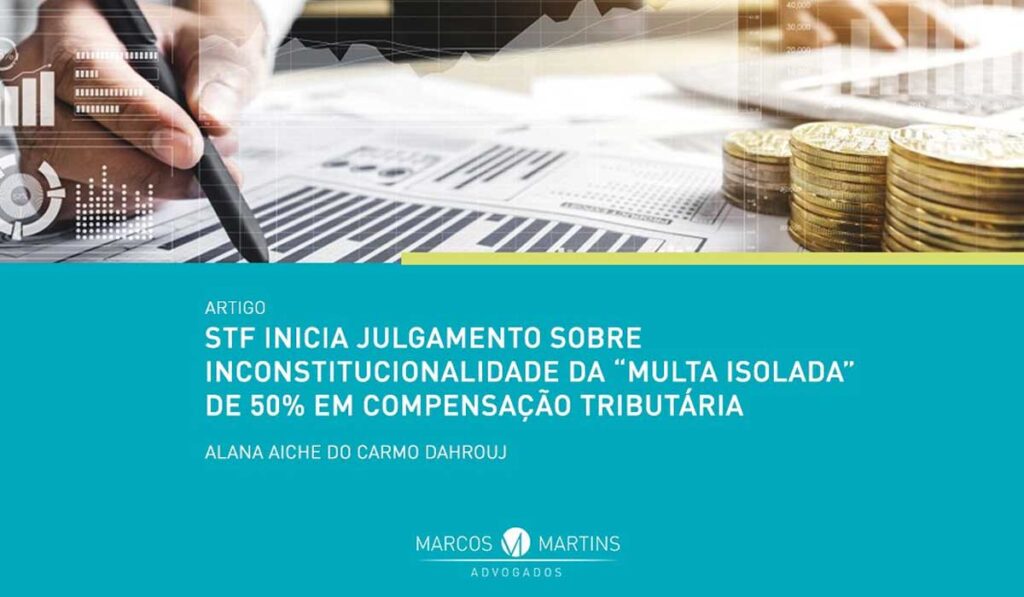Alana Aiche do Carmo Dahrouj
Lawyer at Marcos Martins Advogados
Before going into the heart of the title, some clarifications will be made in order to situate the subject from the reader’s perspective. The legislation allows taxpayers, on identifying the existence of a tax that can be refunded, reimbursed or reimbursed by the Brazilian Federal Revenue Service, to use these credits to offset any debts administered by the same administrative body.
The appropriate means for this procedure is the Electronic Request for Refund or Reimbursement and Compensation Statement – PERDCOMP. Once it has been submitted, the request will be analyzed by the Federal Revenue Office, which must express its agreement or not within five (5) years, failing which the so-called tacit approval will occur.
If the request is not recognized, i.e. when the offset is not approved, the taxpayer will be given the opportunity to present a defense, to demonstrate the legitimacy of the credit or to pay the amount of the debt generated.
In the event of non-approval, there is a provision for the imposition of an isolated fine of 50% (fifty percent) calculated on the debt, as provided for in article 74, §17 of Law no. 9430/1996.
The objective pursued by the Federal Revenue Service in imposing the fine is to restrain taxpayers from practicing procedures that are harmful to the treasury, given that by transmitting the offsetting statements the debts are automatically extinguished, subject to future approval of the procedure carried out by the taxpayer.
It should be remembered that, as a general rule, offsetting is used as a lawful and operationally regulated practice, with no intention of harming the tax authorities, but rather to maintain fairness in the legal tax relationship between the state and taxpayers.
However, sometimes, even if the credit actually exists, the offsets are not approved for various reasons, such as errors in filling in the tax return or inconsistencies between information cross-referenced in various ancillary obligations submitted to the tax authorities. These errors stem from the complexity of the Brazilian tax system, and the taxpayer cannot be charged such a high penalty for simply failing to approve the offset.
Faced with this scenario, the judiciary has been called upon several times and has ruled in favor of the taxpayer, dismissing the application of the fine on the grounds that it is a practice that inhibits the taxpayer’s right to petition and has the effect of discouraging him from making the request for offsetting.
The matter is already before the Federal Supreme Court (STF) and its judgment began on May 8, 2020, registered as Theme 736, when Justice Edson Fachin, the rapporteur of the case, presented his vote dismissing the applicability of the isolated fine because he considered its application unconstitutional in the case of a mere denial of compensation approval.
According to the Justice, the act of petitioning, a right provided for in the Federal Constitution itself, does not consist of an illegal act and, as a logical consequence, is incapable of generating the application of that penalty.
The Public Prosecutor’s Office also issued an opinion that the fine was unconstitutional, considering that a sanction cannot be applied to the practice of a lawful act, stressing that the request for compensation is provided for by law.
The unconstitutionality of the fine is clear, given that it is a punishment to the taxpayer for a simple administrative request, which comes up against the right to petition guaranteed by the Federal Constitution.
It is therefore important for taxpayers to analyze the configuration of their tax liabilities in order to identify any charges for the fine under study, because if the Supreme Court’s opinion is confirmed, any lawsuits questioning its requirement should follow the same understanding, completely ruling out its requirement.
It remains to be seen whether the STF will definitively rule that the isolated fine is unconstitutional, so that taxpayers can re-establish security in their tax relations.
[rock-convert-pdf id=”14682″]








